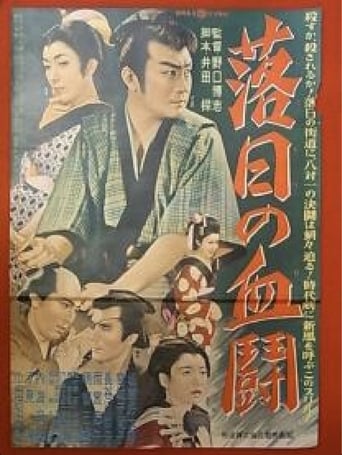
24 May 1955

Duel at Sundown
A remake of High Noon (1952) as a Japanese jidai-geki sword-fighting movie.
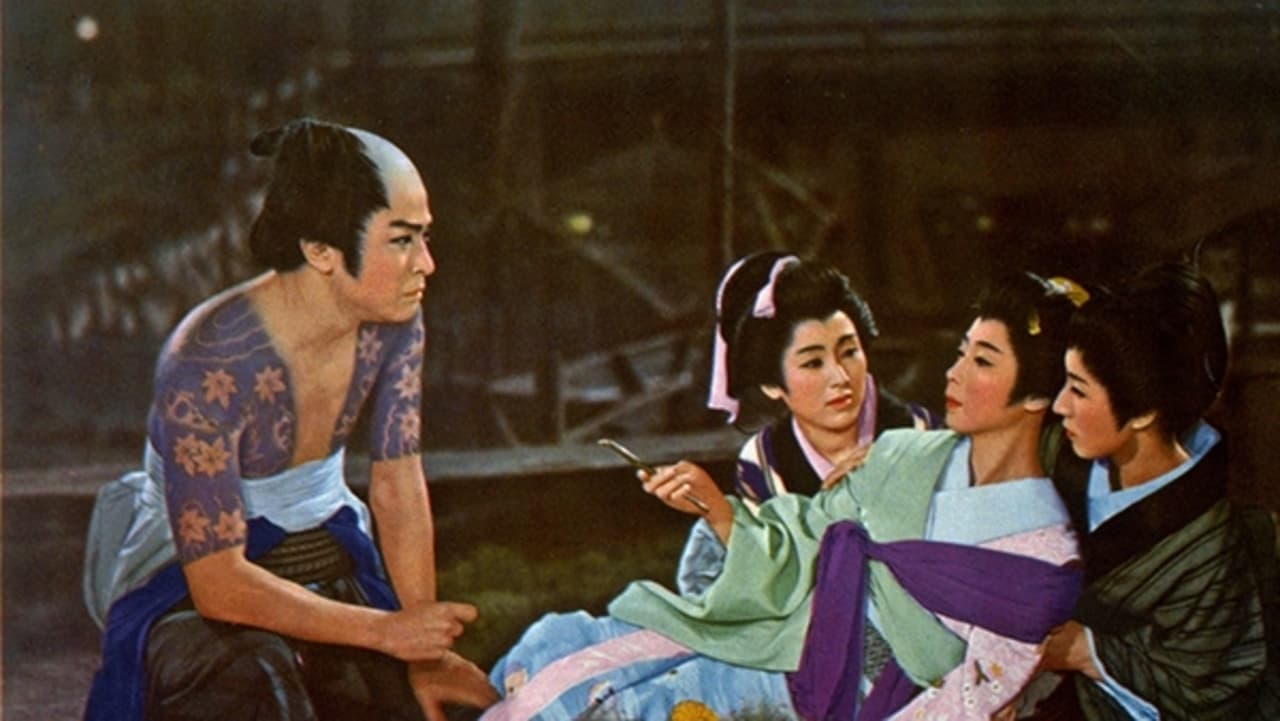
Action and adventure abound in this story of friendship between two rival firefighters, Kichigoro and Jirokichi in old Japan. When Mukai Sadayu, the vassal of Kaga Clan's accounting officer, Shinagawa Daihachi demands that Omon serve him tea in his mansion and she refuses, the clan's samurai abduct her setting in motion a series of events that will bring the two firefighters into a world of danger and excitement. Jirokichi, leader of the Edo firefighting team "Ha-gumi" must first rescue Omon from the clutches of the vile Kaga Clan's retainers.
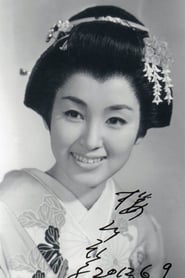









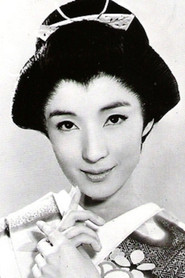


24 May 1955

A remake of High Noon (1952) as a Japanese jidai-geki sword-fighting movie.
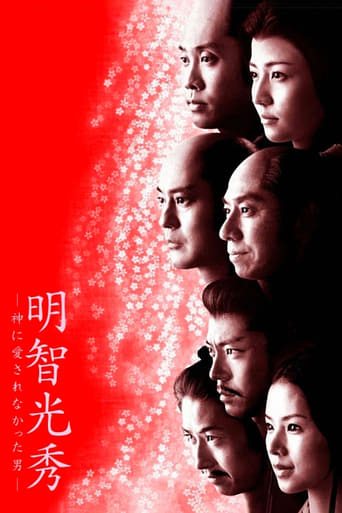
03 Jan 2007

The famed leader Oda Nobunaga had two right-hand men who contributed to unifying the nation. One was Akechi Mitsuhide and the other Kinoshita Tokichiro, both rivals of each other for higher promotions. Eventually Mitsuhide was recognized for his work and was given a castle. However, Nobunaga's ambition to conquer the nation did not allow Mitsuhide to live happily in his territory. That is when an idea flashed across Mitsuhide's mind… Akechi Mitsuhide, the man who was considered to be the most intelligent general of the warring states era. What was the truth about him, Oda Nobunaga's best general and murderer?
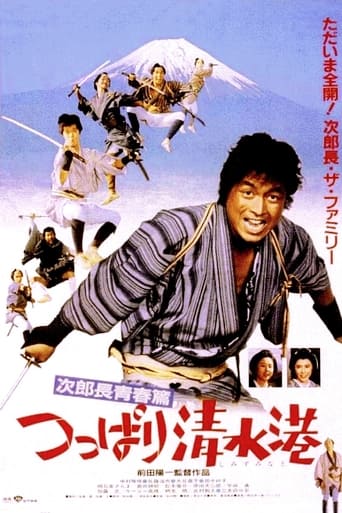
28 Dec 1982

On the day his mother dies, young gambler Jirocho swears in front of her grave that he'll never gamble again. But, that night, Jirocho heads to a gambling den, where he bets the condolence money for his mother's funeral. No surprise to learn he loses the lot. Not the hard-boiled yakuza story it seems, this is a comedy featuring many new artists who were making a name for themselves at the time.
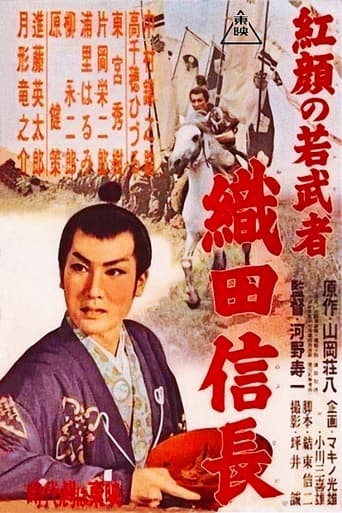
20 Sep 1955

A dynamic story depicting the rise to power of Oda Nobunaga. The story of a young man on the battlefields of the Sengoku era, who possessed character and courage, and who became a great commander and ruler, while some called him a great dictator. A film adaptation of the novel by Sohachi Yamaoka.
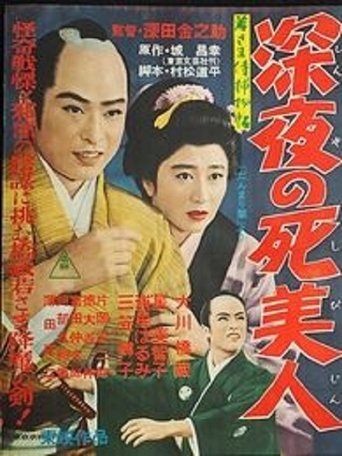
02 Apr 1957

A young lord solves the mystery of multiple murders involving a young couple and a woman.

03 Jun 2006

In a poor district of Edo lives a young samurai named Soza. He has been sent by his clan to avenge the death of his father. He isn't an accomplished swordsman however, and he prefers sharing the life of the residents, teaching the kids how to write etc. When he finally finds the man he is looking for, he will have to decide whether he follows the way of the samurai or chooses peace and reconciliation.
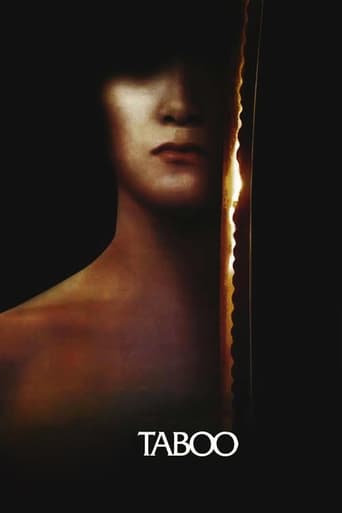
18 Dec 1999

Set during Japan's Shogun era, this film looks at life in a samurai compound where young warriors are trained in swordfighting. A number of interpersonal conflicts are brewing in the training room, all centering around a handsome young samurai named Sozaburo Kano. The school's stern master can choose to intervene, or to let Kano decide his own path.
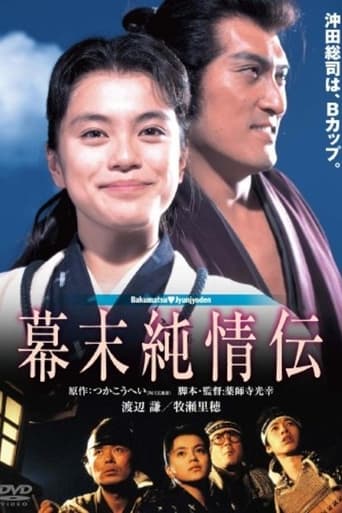
06 Jul 1991

In the last days of the Tokugawa shogunate, there was a cute warrior, Souji Okita, who belonged to the armed police of the shogunate in Kyoto. Very few knew that Souji was not a boy, but a woman. Souji loved the vice-leader of the armed police, Toshizou Hijikata. Souji suffered from pulmonary tuberculosis and coughed up blood during a battle. Toshizou helped her but said that he did not care for the girl with a smell of blood. Souji had a real talent for swordsmanship and no one but Ryouma Sakamoto could compete with her. Ryouma was a liberal intellectual and tried to carry out a revolution without blood. However, the bloody Meiji Restoration broke out and Souji killed Ryouma who lost his dream. Because a friendship had sprung up between Toshizou and Ryouma, Toshizou got angry and slashed at Souji with a sword. Unwillingly, she unsheathed her sword and thought that she might get love if she was killed by the man she loved.

01 Dec 2006

A look at the relationship between a young blind samurai and his wife, who will make a sacrifice in order to defend her husband's honor.
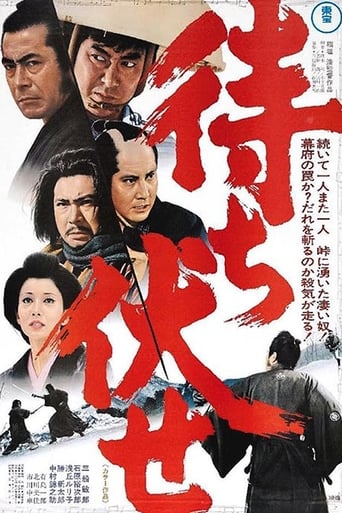
21 Apr 1970

In the Edo period, a nameless ronin accepts an assignment to go to a mountain pass and wait. Near the pass he stops at an inn where a collection of characters gather, including a gang set on stealing shogunate gold that's soon to come over the pass. When the Ronin's assignment becomes clear, to help the gang, he's ordered to kill the inn's residents, including a woman he's rescued from an abusive husband. He's reluctant to murder innocent people; then he learns that the gold shipment is a trap and he's part of a double cross. How he sorts through these divided loyalties tests of his samurai honor, and perhaps of his love for a woman.
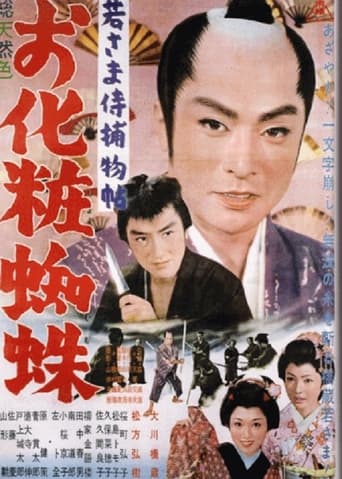
23 Dec 1962

Young lord investigates the mysterious death that takes place in the underworld.
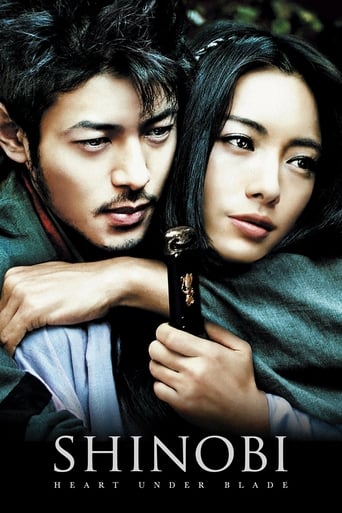
17 Sep 2005

Even though Gennosuke and Oboro are from rival ninja villages, they are secretly in love. At an annual conference with the Lord, it is dictated that a competition--a fight to the death--will take place between the five best shinobi from each village. Gennosuke and Oboro's love is made even more impossible when they each got picked as the leader of the five to represent their respective villages.
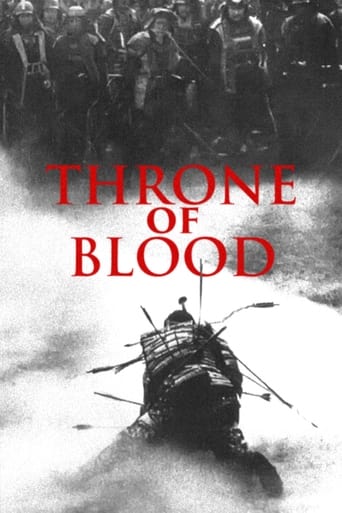
15 Jan 1957

Returning to their lord's castle, samurai warriors Washizu and Miki are waylaid by a spirit who predicts their futures. When the first part of the spirit's prophecy comes true, Washizu's scheming wife, Asaji, presses him to speed up the rest of the spirit's prophecy by murdering his lord and usurping his place. Director Akira Kurosawa's resetting of William Shakespeare's "Macbeth" in feudal Japan is one of his most acclaimed films.
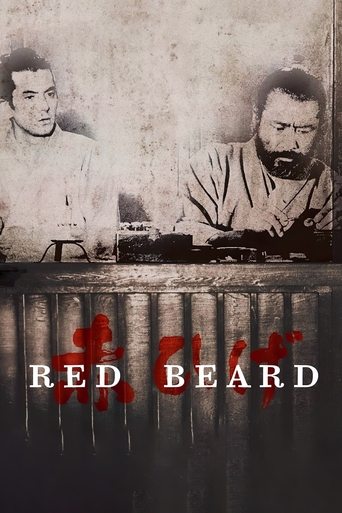
04 Mar 1965

Aspiring to an easy job as personal physician to a wealthy family, Noboru Yasumoto is disappointed when his first post after medical school takes him to a small country clinic under the gruff doctor Red Beard. Yasumoto rebels in numerous ways, but Red Beard proves a wise and patient teacher. He gradually introduces his student to the unglamorous side of the profession, ultimately assigning him to care for a prostitute rescued from a local brothel.
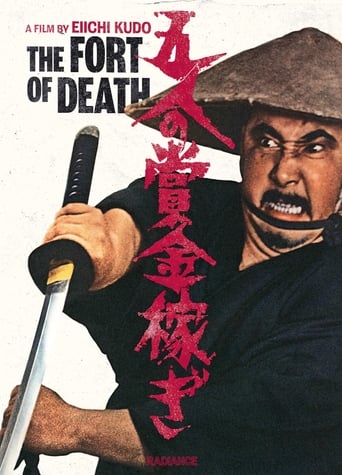
13 Dec 1969

The second Bounty Hunter film, when master killer Shikoro Ichibei takes up the cause of a group of farmers being driven to despair by the vile Lord Ozeki. The villainous lord has driven them to mounting their last stand at a deserted fort against an army of attackers. Wakayama Tomisaburo is superb as an expert in killing and military tactics, who leaves his medical practice at a clinic for the poor in order to counter the vicious tactics of that vile lord.
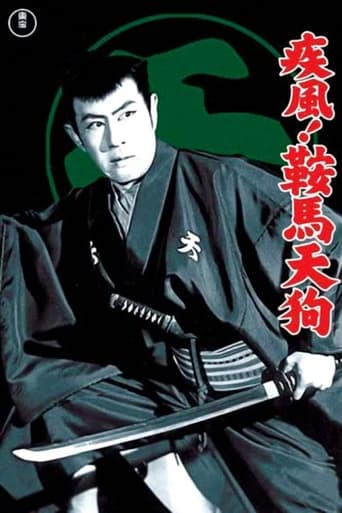
08 Jun 1956

The 40th and final "Tengu Kurama" feature starring Kanjuro Arashi.
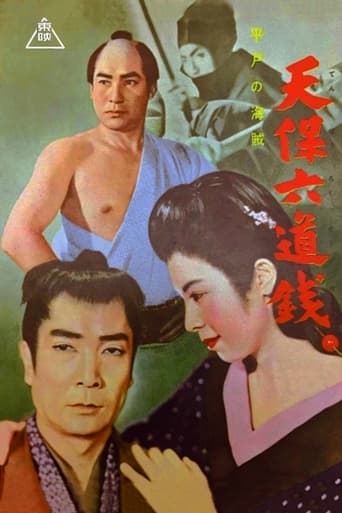
07 Jun 1955

In the 9th year of the Tempo era, after a long sea voyage, Moritaya Seizo returned to Hirado, who earned huge amounts of gold by piracy. Along the way, he picked up Ichinojo Kaneko, a Ronin who survived the disaster at sea. Seizo and Orin, the daughter of merchant Yohei, are in love with each other and want to get married. However, Kashiwakura Gaiki, the samurai of the domain, wants to kill Seizo for the sake of his son Shozaburo, who is in love with Arin, and Kurando Matsuura, the owner of the castle, wants to seize all the gold for himself...
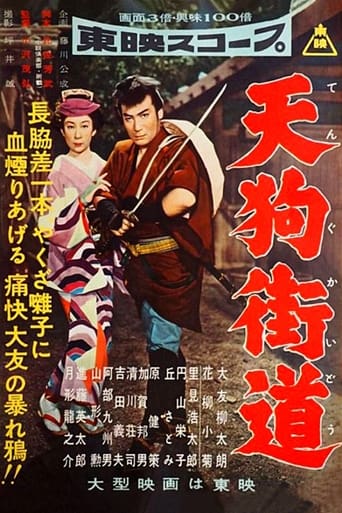
08 Oct 1957

Gombei is Nameless, a wanderer who is skilled with a sword and has a great sense of humor, who tries to save the good people of the Kiso Valley, he gets into a fight with local bad bosses who behave badly on the Tokaido road in the Kiso Valley.
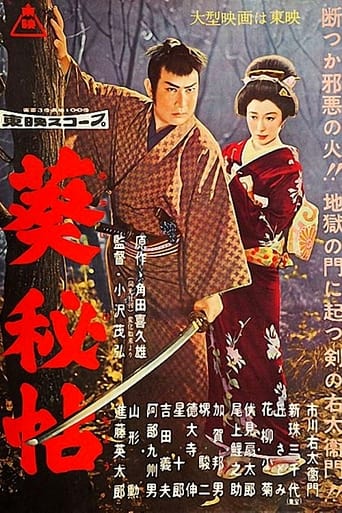
25 Mar 1958

A Golden Age drama depicting the exploits of passionate patriot Uotaro Toge in the midst of a mysterious standoff over the Secret Book of Aoi, which will determine the rise or fall of the 350,000-koku Mito clan, and showcasing swashbuckling swordsmanship.
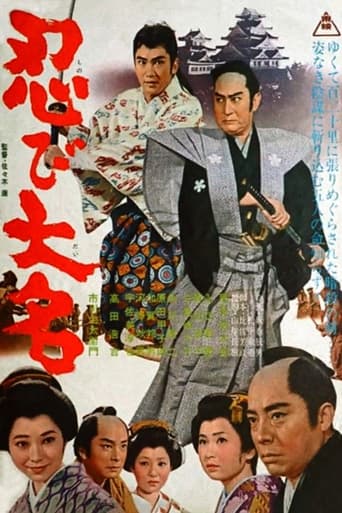
26 Jan 1964

Maeda Tsunanori, the lord of Kaga Domain, had two young princes - Katsumaru, the son of his legitimate wife, who died, and Yasunosuke, the son of his concubine. However, Katsumaru suddenly lost his mind and appealed to the shogunate to hand over the reins of the family Yasunosuke, but the request was rejected. Vassal Osawa Kuranojo suspects that this is the work of Ishikawa Torajiro, a swordsman from the Katsumaru group, and begins an investigation.